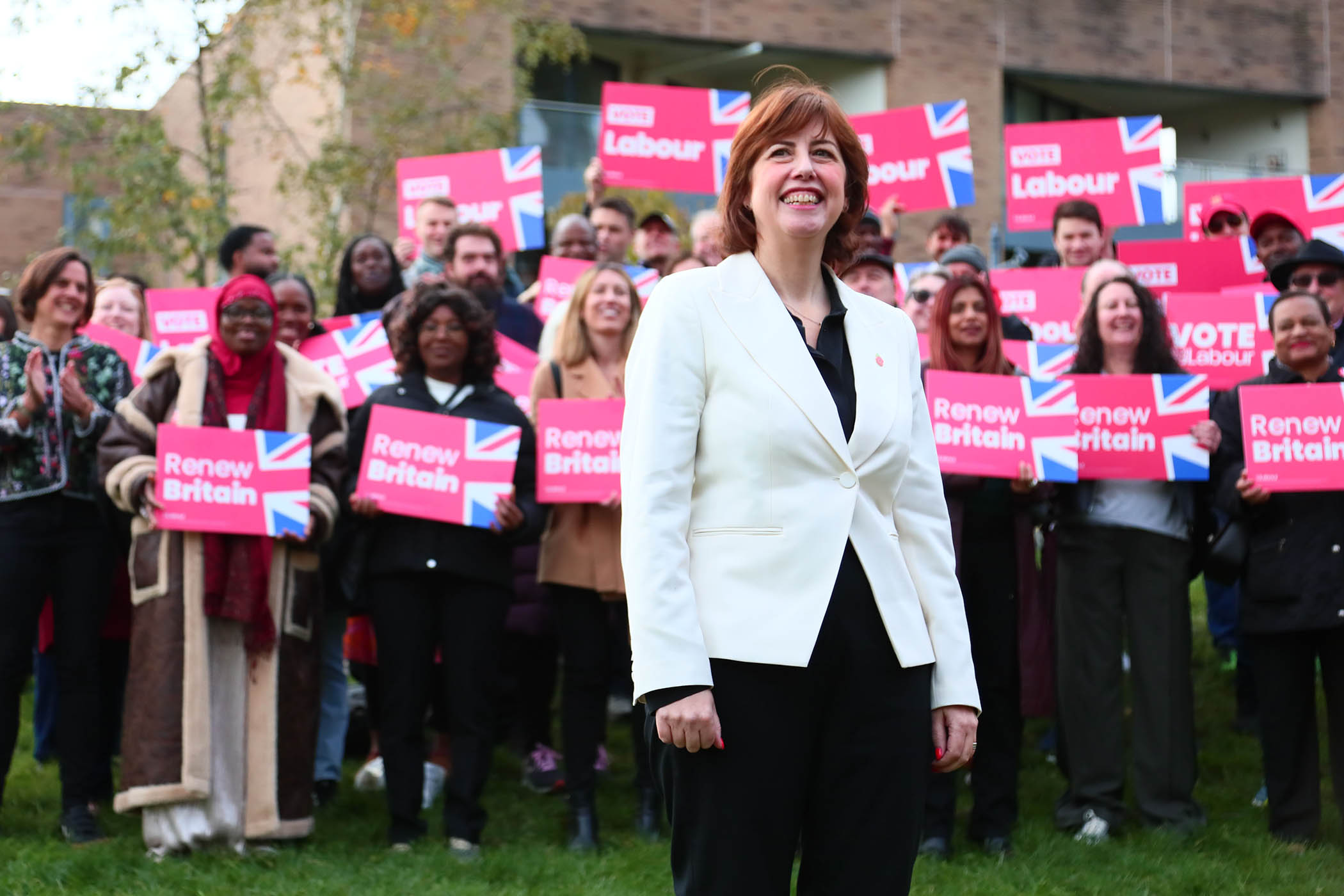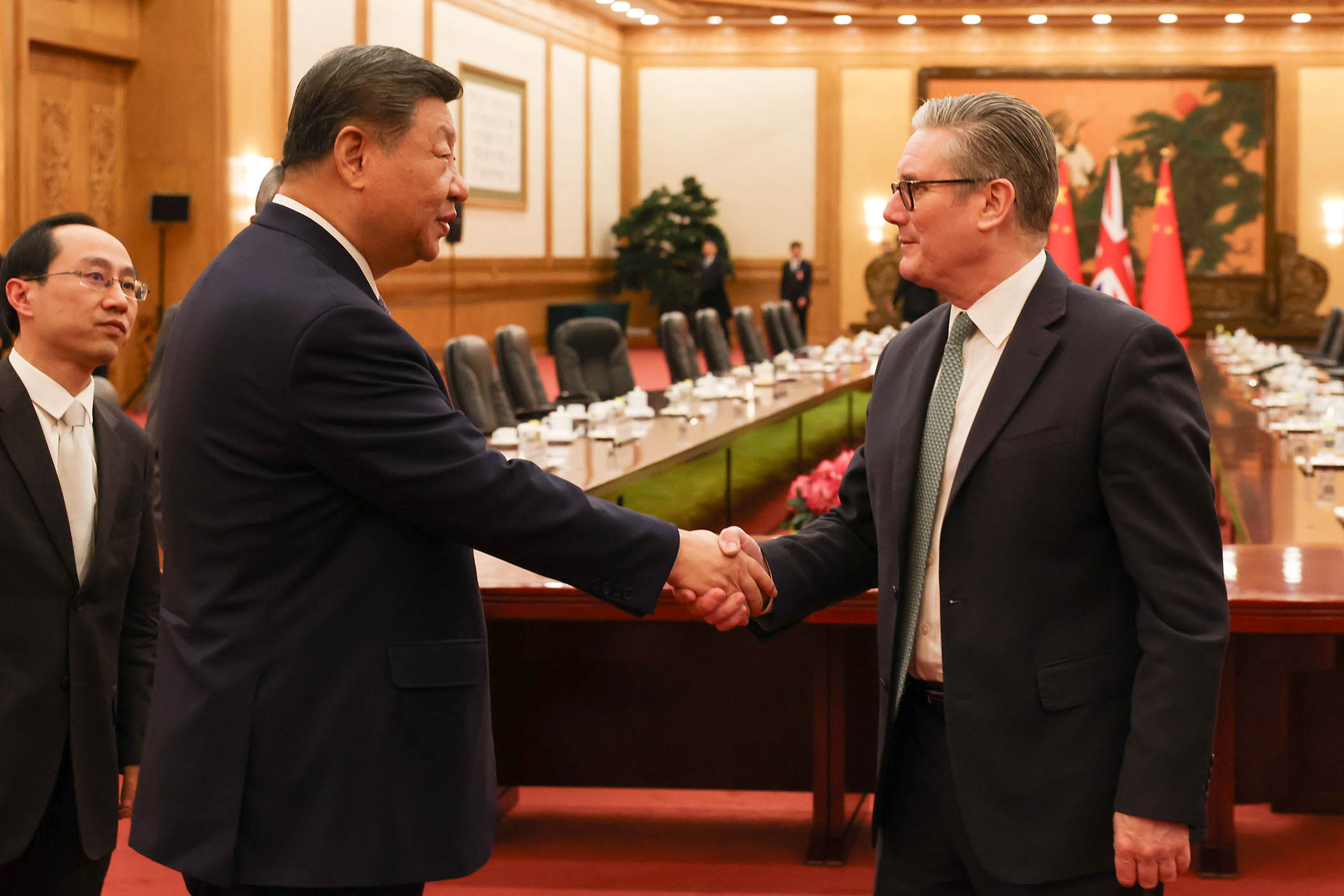This week’s two elections were a story of very different turnouts. Record numbers voted in Thursday’s Caerphilly byelection but the number taking part in Labour’s deputy leadership race dropped off a cliff.
Both cases are concerning for Keir Starmer but yesterday’s race to succeed Angela Rayner as deputy leader may be the most consequential for him personally.
Lucy Powell, who the prime minister sacked as leader of the House of Commons just last month, beat her rival Bridget Phillipson, the education secretary, with 54% of the vote.
Congratulating her yesterday morning, Starmer said: “Lucy has always been a proud defender of Labour values, and that is exactly what we need in this moment. Together, we will fight for Britain. For decency and national renewal.”
Multiple sources said they were surprised how close the result was, given Phillipson’s intrinsic association with a government unpopular even among its own members. “It’s a reminder about the organising force of the moderate organisations,” said one junior minister. The other surprise was the low turnout: just 17%, compared with 59% when Rayner was elected five years earlier.
The apathy among affiliates and members underscores how little support there is for those currently in the Commons. Allies of Andy Burnham are already briefing that “May is the plan” for his return to parliament, with “conversations ongoing” to find him a suitable seat. Many others downplay the threat posed by Burnham, who was forced to endorse Starmer after making his leadership ambitions all too apparent at Labour’s party conference earlier this month.
The process – getting a seat, winning it, and securing the backing of enough colleagues to dislodge Starmer – makes Burnham’s rise anything but inexorable.
But the risk for the prime minister is there.
Related articles:
Powell’s election, says one backbencher, is “proof that they don’t have control of the party and that they are going to have to bring her in”. The same MP stresses that “Lucy is a team player so she’ll be constructive”, but notes that, with no mechanism for her to be sacked again, Powell will not be constrained by collective responsibility
One disillusioned junior minister told The Observer that both the deputy leadership race and Caerphilly were “damning” of the direction of travel.
Newsletters
Choose the newsletters you want to receive
View more
For information about how The Observer protects your data, read our Privacy Policy
“It’s two nails hammered into a rapidly closing coffin,” they said. “On Caerphilly, it’s apocalyptic. We can’t overstate that Keir is bringing about our own ‘pasokification’ [decline of centre-left parties in Europe].”
On Caerphilly, it’s apocalyptic. We can’t overstate that Keir is bringing about his own ‘pasokification’
On Caerphilly, it’s apocalyptic. We can’t overstate that Keir is bringing about his own ‘pasokification’
Junior minister
Thursday’s byelection saw a huge swing away from Labour, which has held the Senedd seat since its creation in 1999, resulting in a victory for Plaid Cymru’s Lindsay Whittle with a turnout of 50.43%. Although Labour had been expected to lose, falling to 11% of the electorate is seen as a canary in the coalmine ahead of the local elections next May.
Reform UK, which had been expected to take Caerphilly, came second after a surge of voting overtook Nigel Farage’s party on the left.
The turnout points to the rise of tactical voting to stop Reform, and the possibility that a progressive alliance could yet save Labour’s time in government, if not every seat.
Polling by Public First and Stonehaven, published by The Observer last month, suggested that with “high levels of tactical voting” at the next general election, Labour could deny Reform a victory. As many as 250 constituencies would need to vote for the party with the best chance of winning – including the Conservatives – making it potentially unpalatable for many voters.
Four years out from such a scenario, even disgruntled Labour MPs are reluctant to entertain such a possibility. “Caerphilly shows we’re in a fight for our lives, to the left as much as the right, and we need to take that as seriously as Reform,” says the same backbencher. “It is retrievable but they have to change direction with the culture of the party and economic direction at the budget.”
But a third minister was less optimistic: “It’s brutal, and we all desperately need this to be a huge wake-up call and dose of reality – but I doubt it will be.”
Photograph by Alishia Abodunde/Getty Images



